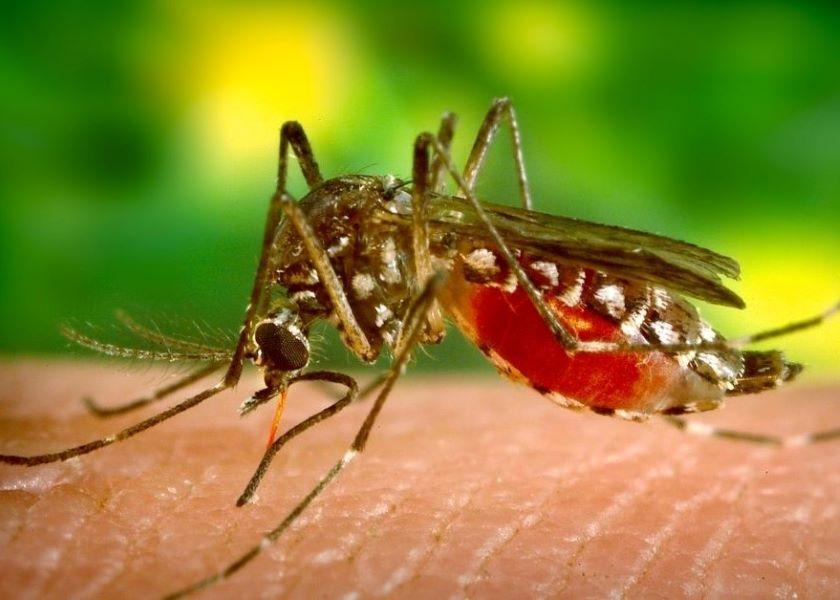JEV in Australia: A Warning Shot that the U.S. Could Be Next?

Why should the U.S. pork industry continue to pay attention to Japanese Encephalitis Virus (JEV) in Australia?
“Because we learned the lesson from porcine epidemic diarrhea (PED),” Paul Sundberg, DVM, executive director of the Swine Health Information Center (SHIC), says bluntly.
He remembers veterinarians talking about PED in 2012 as it circulated around China and caused a lot of trouble for producers.
“We would say, ‘Boy, that’s a bad disease. It’s a good thing we don’t have it here.’ It would be to our peril to not learn lessons from that experience,” he says. “We need to take it as a warning shot that says this could happen to you next.”
The key is preparedness, Sundberg emphasizes. The disease may still get here, but there is no reason for the U.S. to be completely blindsided by this virus primarily transmitted by Culex spp. mosquitoes.
How Does JEV Compare to West Nile Virus?
Sundberg says the most similar disease he can compare it to in the U.S. is West Nile Virus. But he points out one significant difference. Pigs are not an amplifying host for West Nile – pigs are an amplifying host for JEV.
“Both viruses are in the same family and mosquito-related transmission is the same,” he says. “But pigs don’t serve as an amplifying host for West Nile.”
What Makes the U.S. a Concerning Environment?
The U.S. has the same mosquitoes that are able to transmit the virus as those found in Australia. Sundberg says those mosquitoes are able to take in and harbor the virus and transmit it. Not all mosquitoes can do that, he points out. Unfortunately, the U.S. does have the kind of mosquitoes that can.
The second thing that concerns Sundberg is the U.S. also has plenty of reservoir hosts, including waterfowl, egrets and other birds that could carry the virus.
“We didn't know when West Nile started that West Nile could get into such a wide variety of birds species that could act as a source for the virus to get back into mosquitoes. Those are the types of things that we have to pay attention to here. We really don't know the answer to what all those bird hosts are with the JEV that caused the Australian outbreak,” he says.
A New Serotype
Some of these answers are still yet to be found because the JEV strain circulating in Australia now is a different serotype – serotype 4.
“It’s a new one that we don't have any experience with. We know a fair amount about JEV itself and about the other serotypes. We don't know enough specifically about serotype 4 and if or how it's different,” Sundberg notes.
The U.S. also hasn’t confirmed if its diagnostics would be able to discover JEV serotype 4 if it found its way into the country.
“The diagnostics we have for JEV are all built on serotype 1, 2 and 3. There’s an assumption that we can find serotype 4 but we don’t know, for sure,” he says.
That’s an important question that needs to be answered for preparedness. There is still a lot of work to be done, he adds.
“If you're going to be prepared, you can do what you can do for preventing and that primarily means preventing mosquitoes from getting into the country that may be infected. But if you can't find the virus when it gets here, you're not going to be prepared to be able to respond to it.”
Producer Opportunity
The symposium Japanese Encephalitis Virus: Emerging Global Threat to Humans and Livestock will be held October 17-19 in the Center for the Ecology of Infectious Diseases at the University of Georgia. Sponsored in part by SHIC, the symposium is dedicated to furthering understanding of the current JEV outbreak in Australia, and JEV's potential for global impact on human and domestic animal populations.
Registration for the hybrid event is open for virtual or in-person participation.
Symposium events will feature a keynote address by Mark Shipp, Australian Chief Veterinary Officer, who will discuss how the Australian government responded during the 2022 JEV outbreak. Additionally, Bernie Gleeson and Kirsty Richards with SunPork Farms Australia will discuss how the recent JEV outbreak impacted their operations, what they've learned and how they are preparing for the next mosquito season.
Also planned are presentations by USDA about U.S. diagnostic capabilities, the risk of JEV introduction into the U.S., JEV surveillance, and current USDA and public health response plans. Breakout sessions to brainstorm and assimilate into research objectives and next steps will also occur.
The event is supported by the Global Infectious Disease Intelligence Consortium and the Center for the Ecology of Infectious Diseases, University of Georgia.
Read More:
Why U.S. Pork Producers Need to Pay Attention to Australia Right Now
Mosquito-Borne Virus "Is a Nightmare" For Australian Pig Farmers
Mosquito-Borne Virus Discovered on Australian Pig Farms
SHIC Adds to Preparedness With Updated PTV and JEV Fact Sheets
Japanese Encephalitis Virus Could Happen in U.S. Swine Herds







